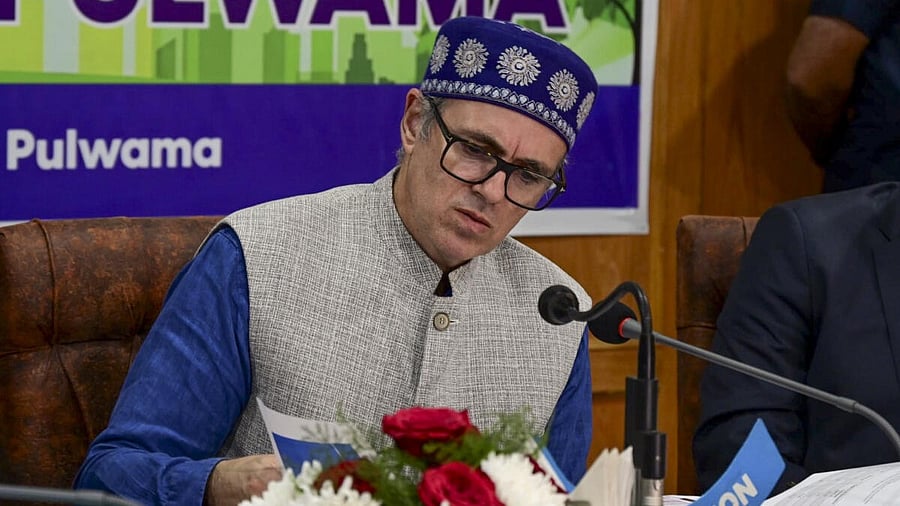
Jammu and Kashmir Chief Minister Omar Abdullah.
Credit: X/@CM_JnKvia PTI Photo
Srinagar: As Omar Abdullah’s government completes its first year in office, the National Conference (NC) finds itself navigating a widening gulf between political rhetoric and administrative reality.
The party’s 2024 manifesto — “Dignity, Identity, and Development” — had raised expectations of a decisive turnaround for Jammu and Kashmir. A year later, those expectations have largely given way to disenchantment and growing skepticism about the government’s capacity to deliver.
For a party that returned to power on an emotional plank — the promise to fight for restoring J&K’s pre-August 2019 status and reclaim its political dignity — the first year has been underwhelming. Of the 12 headline pledges listed in its manifesto, only a symbolic legislative resolution seeking the restoration of Articles 370 and 35A has so far been in the report card of the NC government. The rest remain trapped in files, committees, and competing narratives.
While Omar Abdullah has defended the government’s record, saying that “course correction takes time,” the NC’s early performance has raised doubts about its strategic direction. “The government appears torn between managing daily governance and delivering on its larger ideological promise,” said Rameez Makhdoomi, a political observer in Srinagar. “So far, it has achieved neither convincingly.”
The continuation of detentions under the Public Safety Act — including the arrest of an AAP legislator, Mehraj Malik — has deepened the perception that the NC has retreated from its reformist rhetoric. The government’s repeated assurances to review the PSA, release political prisoners, and initiate reconciliation measures have failed to translate into policy action.
On the economic front, the discontent runs deeper. The promise to create one lakh jobs within six months through a Youth Employment Generation Act has not even reached the drafting stage. Unemployment continues to hover at among the highest levels in the country, with frustrated young voters — once the NC’s most enthusiastic supporters — now voicing disappointment.
The cumulative effect has been a growing sense that the NC government is adrift — caught between symbolic politics and administrative inertia. Civil society activists argue that “normalcy remains a slogan rather than a lived experience,” and that the bureaucracy still runs on auto-pilot mode.
The road ahead
For Omar Abdullah, the next year could prove decisive. Having built his political comeback on the twin narratives of identity and governance, he now faces the challenge of proving that the two can coexist in practice. Without visible progress on jobs, services, and accountability, the NC risks losing both the moral and political ground it reclaimed in 2024.
Analysts say the government must move from managing optics to managing outcomes. “Omar cannot afford another year of symbolic politics,” said a senior journalist based in Jammu. “People have heard enough about dignity; they now want delivery.”
The NC’s predicament also has wider implications for Kashmir’s political landscape. If the government continues to falter, it could open space for the BJP to exploit public fatigue with traditional parties, especially among urban youth.